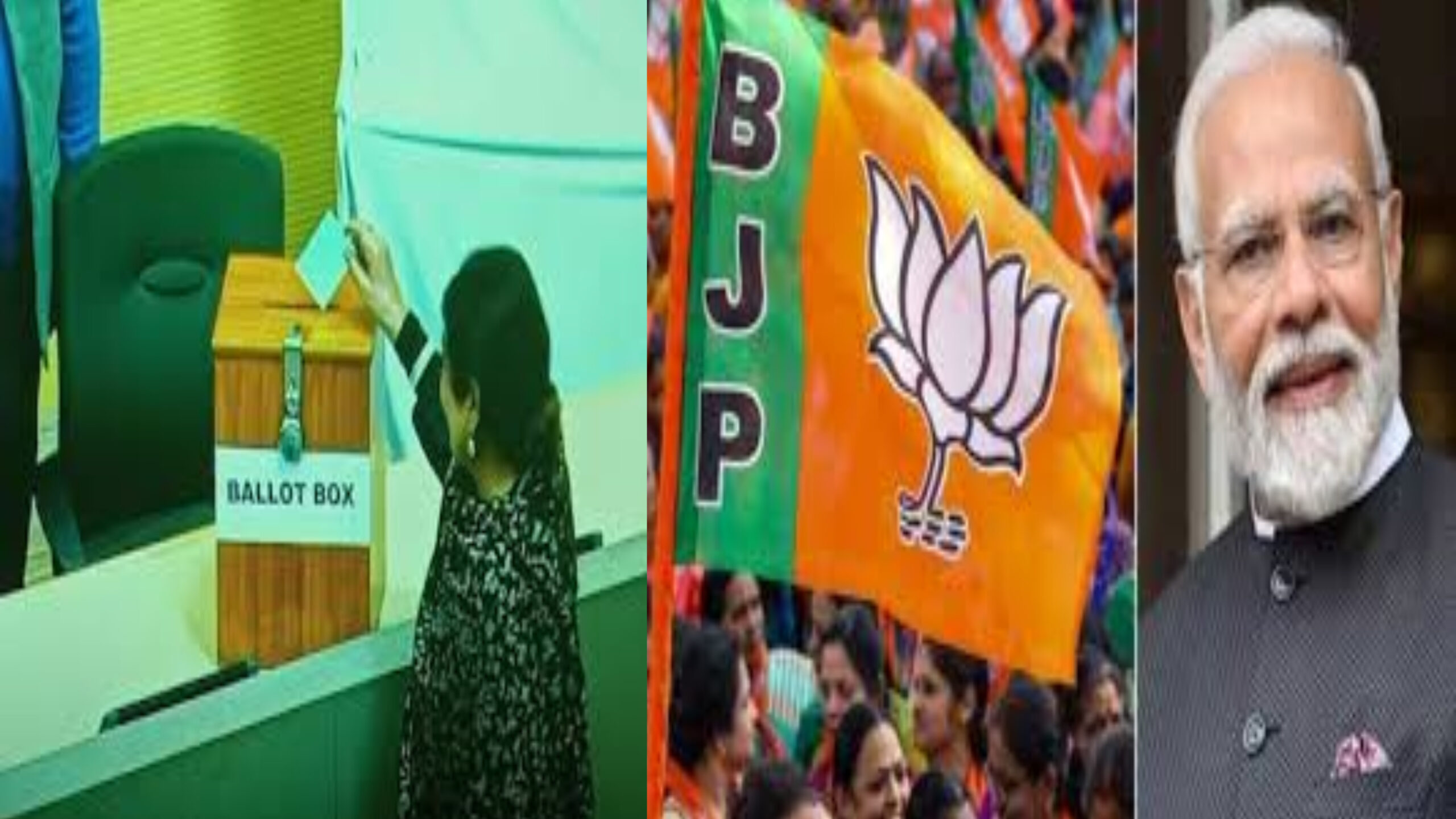In the recent Chandigarh mayoral election, the saffron flag waved triumphantly as the first battle between the Bharatiya Janata Party (BJP) and the Indian National Developmental Inclusive Alliance (INDIA) unfolded. The contest witnessed active participation from leaders spanning Chandigarh to Delhi. The Congress and Aam Aadmi Party (AAP) formed an alliance to challenge the BJP’s dominance in the mayoral seat.
Manoj Sonkar emerged victorious as the new mayor of Chandigarh, marking a shift in the political landscape. The Punjab and Haryana High Court-mandated election resulted in 16 votes for the BJP and 12 votes for the Congress-AAP coalition, with eight votes declared invalid. The entire electoral process was meticulously documented through videography.
For several years, the BJP had held sway over the Chandigarh Municipal Corporation, consistently securing the mayoral position. Despite the Aam Aadmi Party winning the majority of seats in the 2021 municipal elections, the BJP successfully maintained its mayoral control for the past two years. This time, in a bid to break the BJP’s winning streak, the Congress and AAP joined forces.
While party leaders termed it a local-level understanding, INDIA alliance’s Rajya Sabha MP Raghav Chadda proclaimed the victory as a transformative moment for Chandigarh’s political narrative. Chadda emphasized the significance of this election in reshaping the image and destiny of politics in the region.
The mayoral elections in Chandigarh historically took place before December 31st, with the city witnessing its first mayor, Kamla Sharma from the BJP, taking the oath on December 23, 1996. Until 2013, the mayoral elections were consistently concluded before December 31st, with the newly elected mayor assuming office on January 1st. However, this pattern changed after 2015.
It is believed that parties experiencing defeat in the mayoral election faced disappointment due to the symbolic association of the first day of the year with their loss. Consequently, the election cycle was shifted to the first week of January. Poonam Sharma took her oath as the mayor on January 6, 2015, initiating a trend where mayoral elections gradually moved forward in the calendar. Asha Jaswal assumed office on January 12, followed by Rajesh Kalia on January 19.
The BJP, a dominant force in the Chandigarh Municipal Corporation, had consistently secured the mayoral position for several years. Despite the Aam Aadmi Party winning the majority of seats in the 2021 municipal elections, the BJP successfully maintained its mayoral control for the past two years. This time, in a bid to break the BJP’s winning streak, the Congress and AAP joined forces.
While party leaders termed it a local-level understanding, INDIA alliance’s Rajya Sabha MP Raghav Chadda proclaimed the victory as a transformative moment for Chandigarh’s political narrative. Chadda emphasized the significance of this election in reshaping the image and destiny of politics in the region.
The mayoral elections in Chandigarh historically took place before December 31st, with the city witnessing its first mayor, Kamla Sharma from the BJP, taking the oath on December 23, 1996. Until 2013, the mayoral elections were consistently concluded before December 31st, with the newly elected mayor assuming office on January 1st. However, this pattern changed after 2015.
It is believed that parties experiencing defeat in the mayoral election faced disappointment due to the symbolic association of the first day of the year with their loss. Consequently, the election cycle was shifted to the first week of January. Poonam Sharma took her oath as the mayor on January 6, 2015, initiating a trend where mayoral elections gradually moved forward in the calendar. Asha Jaswal assumed office on January 12, followed by Rajesh Kalia on January 19.
In conclusion, the Chandigarh mayoral election marked a significant turning point with Manoj Sonkar of the BJP securing victory amidst the INDIA alliance’s initial setback. The alliance’s leaders, however, remain optimistic about the broader impact of this outcome on the political landscape, emphasizing its potential to alter the perception and destiny of politics in the region.

